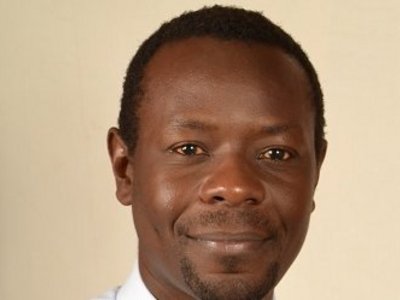

Many of the initiatives have been led by Prof. Luke Olang, a hydrologist and water resource expert at the TU-Kenya, who undertook part of his doctoral studies from 2005 to 2009 at the University of Natural Resources and Life Sciences (BOKU), Vienna. The research experiences of Prof. Olang today span across the African continent, particularly in the area of climate change adaptation within the water resource sector where he leads a number of local to regional initiatives on water and food security.
A recent initiative supported by the Austrian Development Cooperation (ADC) in which Prof. Olang was involved has been the CapNex project. The project ran from 2016 to 2020 with the aim of understanding the water-energy-food security nexus through research and training in East Africa. The project, with a consortium of four institutions, trained a number of doctoral students from the TU-Kenya, whose component focused largely on impact studies of human-induced processes often leading to accelerated soil erosion and degradation, often with important feedbacks on regional climate and desertification. This study has provided insights and anecdotal evidence on the existing land and water resources, including potential management interventions for improved natural resource management; thereby complimenting the ongoing regional initiatives within the transboundary River Basin of Kenya and Uganda.
An earlier study by Prof. Olang, supported by ADC within the framework of the North-South-Dialogue Scholarship Programme focused on the Nyando River Basin, draining into Lake Victoria of East Africa. This study revealed amplified flood magnitudes during rainfall events consequent of prevalent deforestation witnessed in its headwaters. The study highlighted the critical need for localized afforestation programs, which are today proactively being pursued by the local administrative authorities of the area, including more frequent monitoring of the degradation patterns within the larger Lake Victoria Basin has also been instituted. Presently, Global Forest Watch estimates that the Nyando Basin lost about 14% of its natural forest between the years 2000 and 2020, equivalent to about 150.000 tonnes of CO2 emissions, highlighting its contribution to global warming and climate change overall.
Other studies have also been carried out in the Mara River Basin of Kenya. The transboundary Mara Basin is renowned for the Great Wildebeest Migration and is an important ecosystem whose sustainability is threatened by increasing inordinate development activities. The study, supported by the Commission for Development Research (KEF), explored the impact of development and management options on water resources in a basin where allocation of limited water resource against competing demands is increasingly becoming important. Through the study, the impacts of the existing ad-hoc approaches on the existing water demand-supply system was accentuated, including possible management interventions for the long-term survival of the world-renowned Maasai Mara-Serengeti ecosystem.
More recently, a study supported the Cooperation Development Research (KOEF) has been instituted in the Great Rift Valley of Kenya to assess the source and causality of the rising water levels of the of the Rift Valley Lakes. The ongoing study fortifies the existing cooperation between the BOKU and TU-Kenya on an issue which is presently of global concern. This research is ongoing and will train local capacity, while attempting to demystify the potential causes of the rising water levels. Part of this work has recently been published by the collaborating experts of the study.
In all these projects, the research collaborations have been profoundly sustained through constant consultations, discussions and tenacity. Where possible, short-term stays have been facilitated through the OeAD’s Ernst-Mach Grants. According to Prof. Olang, his education and training experience in Austria has provided a good opportunity to leverage and scale-up his capabilities in a multi-cultural research setup - through co-actions to address real issues affecting the society. The research support provided afterwards has not only led to more certainty in his work, but also provided an opportunity to expand his professional networks and expert-base for prospective partnerships. He says “the opportunity to relate with various researchers across-board promoted confidence building, particularly when one recognizes the effort distinguished researchers in the North undergo to develop, prepare and package their work for global visibility”. The support provided by ADC and the Ministry of Education, Science and Research is therefore highly acknowledged considering the challenges researchers in the South constantly face while sourcing for funds to promote research to enhance global visibility.
Luke O. Olang is the Director of the Centre for Integrated Water Resource Management at the Technical University of Kenya (TU-K). He is a Professor of Hydrology and Water resources from the Faculty of Engineering and Built Environment. He holds a PhD from University of Natural Resources and Life Sciences, Vienna (BOKU), financed by the Austrian Development Cooperation. His research interests are in water resource studies that attempt to understand hydrological variability within the coupled terrestrial systems. This includes the intersection of human activities; and translation of the derived knowledge to improve management of the concerned bio-geo-chemical cycles. Professor Olang has published in the larger area of climate change adaptation and is presently leading regional initiatives towards enhanced drought risk management within the Horn of Africa.
